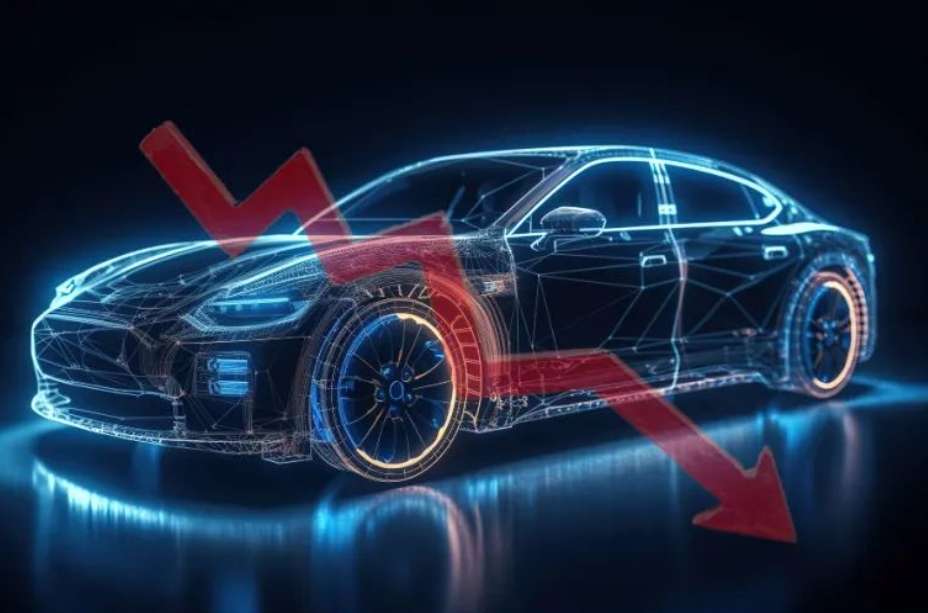Honda-Nissan Merger Falls Through
Advertisements
Honda Motor Co., the prominent Japanese automotive manufacturer, recently unveiled its financial results for the third quarter, showcasing a modest year-on-year growth of 5% in operating profit. This increase is attributed largely to the robust performance of its motorcycle division and the weakened yen. However, analysts had anticipated a higher figure, which led to a sentiment of disappointment surrounding the announcement.
For the three months ending December 31, Honda's operating profit reached 397.3 billion yen (approximately $2.6 billion), falling slightly short of the average forecast from analysts, which was pegged at 407 billion yen. Despite this underperformance in profit, Honda reported net sales of 5.5 trillion yen, surpassing the market expectation of 5.4 trillion yen. This indicates that while profits did not meet expectations, sales remained strong, particularly when considering the competitive landscape the company is grappling with.
The motorcycle sector, which has been a traditional strength for Honda, showed significant gains, yet the automotive side of the business faced challenges, particularly in China and Japan. While the demand for Honda vehicles remained stable in the United States, it has been a tale of contrasting markets, with notable declines in the Asian giant. The rising prominence of electric vehicle manufacturers in China poses an increasing threat to established players like Honda. The brand's ability to navigate through price wars and gain market share will be crucial as it looks ahead.
Focusing on the roadmap ahead, Honda has reaffirmed its projected operating profit for the year at 1.42 trillion yen, indicating a cautious optimism about its financial outlook.

A significant development surrounding Honda's strategy was the recent announcement regarding merger discussions with competitor Nissan. Just before the earnings release, the two companies disclosed their decision to terminate their talks concerning a potential merger. Instead, they will continue collaborating in the electric vehicle arena. The dissolution of these negotiations is a critical moment, especially for Nissan, which has been struggling financially and now finds itself in search of alternative strategies to shore up its fiscal health.
The failed merger discussions have ramifications for both companies. Nissan, in particular, is now forced to devise new paths for recovery, having downgraded its full-year operating profit forecast from 150 billion yen to 120 billion yen. This adjustment includes a restructuring cost of 100 billion yen and is indicative of the challenges Nissan is encountering.
On a related note, Honda's CEO, Toshihiro Mibe, expressed regret over the unsuccessful merger negotiations but maintained that there was still a consensus on the potential synergies that could be realized through their existing collaborations. He firmly stated that Honda has never entertained malicious acquisition intentions towards Nissan, asserting that there was no involvement from the Japanese government in the negotiation discussions with Nissan executives.
The buzz surrounding the potential merger had been building for almost three months, with Honda seeking to enhance its scale to better adjust to the global automotive sector’s transformations. On the flip side, Nissan urgently needed financial support. A successful merger would have potentially established a formidable alliance that could have more effectively contested against Toyota and its network of smaller automotive companies. It could have offered a more balanced competition against traditional giants like Volkswagen, which is likewise facing fierce competition from new entrants in the electric and hybrid vehicle market.
Nissan’s troubles have been underscored by their concerning financial reports, revealing a staggering 94% decline in net profits for the first half of the year. Alongside this downturn, they announced intentions to cut 9,000 jobs and reduce production capacity by 20%. The frequent changes in senior management coupled with an aging product lineup have left Nissan at a competitive disadvantage in the U.S. hybrid market as well as the burgeoning electric vehicle market in China.
During the course of the failed merger negotiations, Honda's management had insisted that Nissan first needed to stabilize its internal operations, whereas Nissan maintained that operational improvements could be achieved without the need to close down factories. Recent reports suggested that Honda had proposed an acquisition of Nissan, aiming to integrate it as a wholly-owned subsidiary, but this idea was met with vehement opposition. Consequently, Nissan must now actively pursue new partnerships while Honda seems to project a more favorable outlook for its future.
Looking ahead towards innovation, Honda has set ambitious goals, with a plan to ramp up its hybrid vehicle sales to 1.3 million units by 2030, a doubling from the current 650,000 units expected in 2023 (excluding the Chinese market). This growth strategy predominantly focuses on the North American market, where demand for eco-friendly vehicles is on the rise.
In light of strong demand from Asian markets, Honda has revised its annual motorcycle sales forecast, raising it from 20 million units to 20.6 million. However, due to disappointing results observed in the Japanese automobile market, the automotive sales outlook has been adjusted slightly down from 3.8 million to 3.75 million units.
Honda’s Vice President, Shinji Aoyama, commented during the third quarter earnings announcement that the strong performance of motorcycle sales has been largely offset by the decline in automobile sales, which in turn affected profits. Nonetheless, he reaffirmed that the company's stock buyback plan announced in December, amounting to 1.1 trillion yen, will proceed as planned.
Leave Your Comment